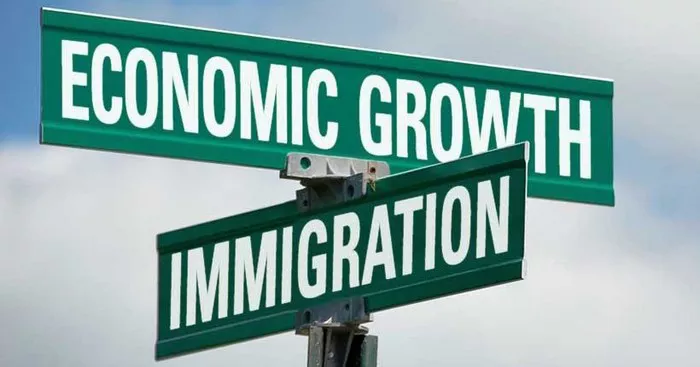Immigration has been a topic of heated debate in many countries, often polarizing public opinion and political discourse. However, amidst the rhetoric and emotion, it is essential to examine immigration through an objective lens, particularly regarding its economic implications. This article seeks to delve into the complex relationship between immigration and the economy, exploring the various ways in which immigration can contribute positively to economic growth and prosperity.
Economic Growth and Labor Market Dynamics
One of the most significant ways in which immigration benefits the economy is through its impact on labor markets. Immigrants often fill critical gaps in the labor force, particularly in sectors facing labor shortages or requiring specific skills. In countries with aging populations and declining birth rates, such as many Western nations, immigration plays a crucial role in replenishing the workforce and sustaining economic growth.
Moreover, immigrants are often highly entrepreneurial, creating new businesses and driving innovation. Studies have consistently shown that immigrants are more likely to start businesses than native-born citizens, contributing to job creation and economic dynamism. By fostering entrepreneurship and innovation, immigration stimulates economic growth and enhances competitiveness in global markets.
Furthermore, immigration can also have a positive effect on productivity levels. Immigrants bring diverse perspectives, experiences, and expertise to the workforce, enriching the talent pool and fostering a culture of creativity and collaboration. Research has demonstrated that diverse teams are more innovative and productive, leading to enhanced economic performance and competitiveness.
Consumer Spending and Economic Demand
Immigration also stimulates economic demand by increasing the size of the consumer market. As immigrants settle and integrate into their new communities, they contribute to consumer spending, driving demand for goods and services across various sectors of the economy. This increased demand can lead to job creation and business expansion, further fueling economic growth.
Moreover, immigration has a multiplier effect on the economy, as immigrant households consume goods and services, pay taxes, and contribute to local economies. This multiplier effect generates additional economic activity, creating a virtuous cycle of growth and prosperity. Studies have estimated that each immigrant household generates significant economic value through their consumption and economic participation.
Fiscal Impact and Public Finances
Contrary to popular misconceptions, immigrants often make substantial contributions to public finances through taxes and other forms of fiscal participation. While immigrants may initially impose costs on public services such as education and healthcare, they also contribute tax revenue through income, sales, and property taxes. Over time, as immigrants integrate into the workforce and earn higher incomes, their net fiscal impact tends to become positive.
Moreover, immigrants play a crucial role in sustaining social welfare programs and entitlements, particularly in countries with aging populations and rising pension burdens. By working and paying taxes, immigrants help support social security systems and ensure their long-term sustainability. Without immigration, many advanced economies would face significant challenges in funding their social welfare programs and maintaining fiscal stability.
Innovation and Technological Advancement
Immigration is a driving force behind technological advancement and innovation, as immigrants bring diverse skills, knowledge, and perspectives to the workforce. Immigrant scientists, engineers, and entrepreneurs have played pivotal roles in advancing technological frontiers and driving economic progress. Silicon Valley, for example, owes much of its success to immigrant entrepreneurs and innovators who have founded some of the world’s most influential tech companies.
Furthermore, immigrants contribute to research and development efforts across various industries, leading to breakthroughs in science, medicine, and engineering. By attracting the best and brightest minds from around the world, countries can maintain their competitive edge in the global innovation race and ensure continued economic prosperity.
Conclusion
In conclusion, immigration is undeniably beneficial to the economy, contributing to economic growth, labor market dynamism, consumer spending, fiscal sustainability, and technological innovation. Rather than viewing immigration as a burden or threat, policymakers should recognize its immense potential as an engine of economic prosperity and inclusive growth. By adopting policies that facilitate immigration and support immigrant integration, countries can harness the full economic benefits of immigration while promoting social cohesion and cultural diversity. As we navigate the complexities of a rapidly changing global economy, embracing immigration is not only a moral imperative but also an economic imperative for long-term prosperity and success.


